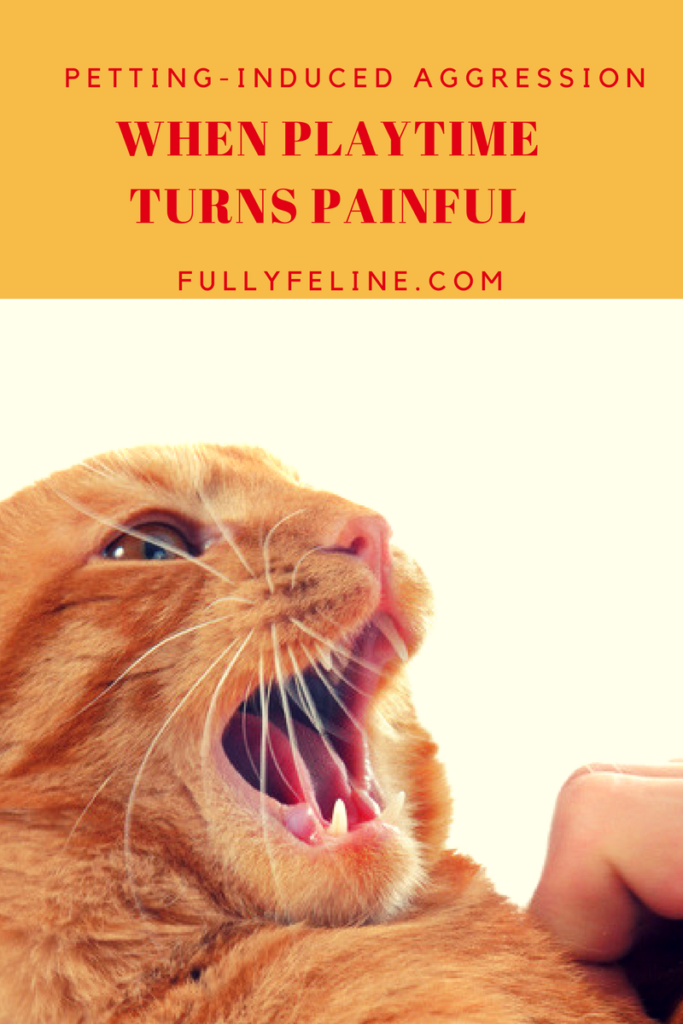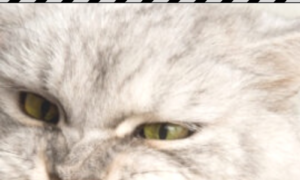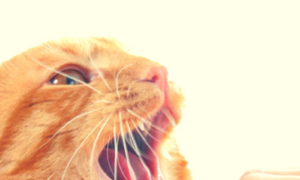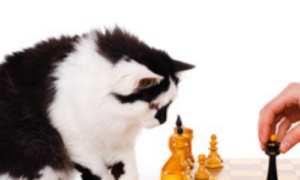Has your cat ever bitten you unexpectedly? Some term this behavior love biting, but I beg to differ. According to vetstreet.com, some vets have given this behavior a more formal name: pet-induced aggression.
While a cat may initially enjoy the friendly affection that comes with petting, after a while, he may feel this has gone on for too long and may go from an attitude of friendliness to one of aggression, often in the blink of an eye.

What Causes Pet-Induced Aggression?
Why is this so? Here are a few theories:
- According to some experts, it’s a manifestation of the induced aggression. In other words, the cat is trying to assume control.
- A neurologically significant stimulus the cat associates with being petted at length causing him to engage in this behavior.
- Some cats are rather subtle about letting their owners know when they are not happy, and this change in attitude appears more sudden than it truly is.
- For senior cats that suffer from arthritis, it can be painful to be petted and the biting is the signal to stop.
But there is good news! Just because your cat may bite you during play sessions, or simply when petting him, that doesn’t mean you have to cease playing and engaging with him.
Signs Your Cat Is Overstimulated
Know how to spot the signs your cat is becoming overstimulated and biting may be imminent. Ears back, and a thumping or rapidly flicking tail are signs your cat is not pleased and is headed to attack mode. Other signs include dilated pupils, and assuming a crouching position.
When your cat bites you during a play session, stop play immediately. Give your cat something appropriate to chew on. Observe your cat’s body language. When he has calmed down, introduce some calmer play.
Your veterinarian can guide and coach you on recognizing the subtle warning signs that may suggest your cat is not happy before his attitude escalates to the biting point.
It may seem your cat attacks without warning. Cats very often give signals before they attack. It’s up to us to be observant and know it’s time to back off when your cat’s had enough.







Pingback: Daily Play Sessions With Your Cat: 5 Reasons It's Good Idea